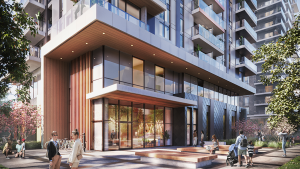OTTAWA — Rents are still rising in Canada but the year-over-year pace of growth has slowed, according to a new report.
The data from Rentals.ca and Urbanation says asking rents for all residential property types averaged $2,201 in July, up 5.9 per cent from last year.
The year-over-year increase is the slowest rise since early 2022, while more recently, growth has often topped 10 per cent, the report said.
Rental rates saw downward pressure during the pandemic as population growth slowed and demand weakened, leaving the average to bottom at $1,685 in March 2021. Last month’s average makes for a roughly 31 per cent rise since then.
But recent increases have been felt more in smaller markets, while major cities have seen some annual price retreat as a wave of condo completions come on the rental market.
Vancouver saw a roughly seven per cent decrease in July rents from last year to leave its average at $3,101 and Toronto had rents decline five per cent to $2,719.
Quebec City, on the other hand, had a 21 per cent increase to $1,657, Halifax had an 18 per cent increase to $2,373, and prairie cities like Saskatoon, Edmonton and Regina also saw double-digit gains.
Overall, all provinces except Ontario and B.C. saw year-over-year rent increases, with Saskatchewan leading the way at 22.2 per cent.
Month-over-month also saw regional variation, but little change at the national level as the average grew 0.8 per cent in July from a month earlier, compared with an 0.8 per cent decline in June.
“Rents were effectively flat over the past three months, decreasing by just $1 at the national level from May to July,” the report said.
The federal government has been rolling out some measures to try and tamp down on rent increases, including a cap on international student enrolments and aiming to overall reduce the number of temporary residents, while also rolling out more funding to build more rental supply.
Construction of new rental options however have been hampered by high interest rates and rising construction costs.
©2024 The Canadian Press











Recent Comments
comments for this post are closed